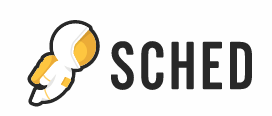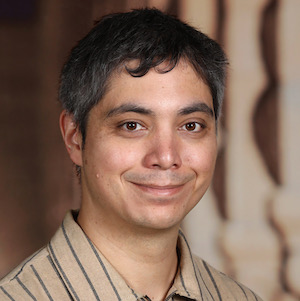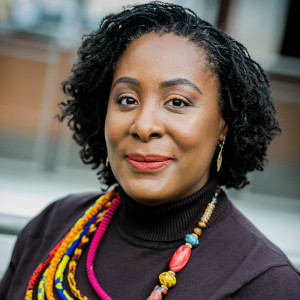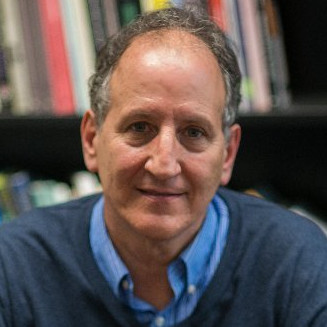catesol24_program
Conference Program
There are three ways to access the schedule of events.
- Install the free Sched app from Apple Apps or GooglePlay. All attendees and presenters will be automatically added into the Sched app, at which point you will receive an email notification. Once you have been added, you can then log in to use the chat feature, receive schedule change notifications, and save your schedule for offline reference.
- View all conference information in a browser.
- Download and print the Program (pdf).
Schedule at a Glance
Thursday (Virtual) November 14
9am–9:45am
Opening Remarks
10am–5:15pm
Featured Speakers
5:30pm–6:45pm
Keynote Speaker
7pm–8pm
Chapter Meeting
Thursday (In-Person) November 14
4pm–7pm
Registration
Friday, November 15
7:30am–4pm
Registration
7:45am–8:45am
Breakfast & Newcomer Orientation
7:45am–4:15pm
Exhibitor Hall & Coffee
8:45am–12pm
Concurrent Sessions
12pm–1:30pm
Lunch & Rap Sessions
1:30pm–2:30pm
Concurrent Sessions
2:30pm–3:30pm
Exhibitor Hour & Snacks
3:30pm–4pm
Concurrent Sessions
4:15pm–5:30pm
Plenary
5:30pm–6:30pm
Grad Student Mixer | CEF Election
5:30pm–8pm
President's Reception
Saturday, November 16
7:30am–12pm
Registration
7:45am–8:45am
Breakfast & Newcomer Orientation
7:45am–4pm
Exhibitor Hall & Coffee
8:45am–10:45am
Concurrent Sessions
11am–12:15pm
Plenary
12:15pm–1:45pm
Lunch & Rap Sessions
1:45pm–2:45pm
Concurrent Sessions
2:45pm–3:45pm
Exhibitor Hall & Snacks
3:45pm–4:45pm
Concurrent Sessions
5pm–6pm
Town Hall & Business Meeting
Professional Development Certificate
Attendees will be able to receive an Attendance PD Certificate: download the app; add sessions to your schedule; attend the sessions; and self-enroll when sessions start.
Questions about the program?
Email Program Chair, Tammy Wik, and Program Coordinator, Olga Evans, at catesolprogram@gmail.com
Photographic Consent
CATESOL, a non-profit organization, reserves the right to use photography and video images, names, and statements of conference attendees and presenters, age 18 and older, taken in conjunction with CATESOL sponsored events, including the Annual Conference, Regional Conferences, and chapter or interest group events for marketing and promotional purposes. Objection to the use of any of the above must be made in writing to the CATESOL office, postal address displayed on the About Us page.
Plenary Speakers
Thursday
Shift, Return, & Heal: Building Justice from Within Our Classrooms
In this talk, Dr. Antero Garcia explores contemporary contexts for supporting diverse classrooms for justice-centered learning. Building on examples ranging from youth literacy practices on public school buses to ethical storytelling activities with immigrant communities, this talk offers examples for educators and the necessary questions that must guide our field in ever tenuous times. With research spanning from across the U.S., the topics in this talk will focus on the needs of learners of all ages and educators in both K-12 and higher education contexts. Finally, this talk will conclude with opportunities for group participation and Q&A.
Antero Garcia is an Associate Professor in the Graduate School of Education at Stanford University and the vice president of the National Council of Teachers of English. His research explores the possibilities of speculative imagination and healing in educational research. Prior to completing his Ph.D., Garcia was an English teacher at a public high school in South Central Los Angeles. He has authored or edited more than a dozen books about the possibilities of literacies, play, and civics in transforming schooling in America. Antero currently co-edits La Cuenta, an online publication centering the voices and perspectives of individuals labeled undocumented in the U.S.
Friday
The AfroMetaverse as Black Placemaking for Racial Justice in TESOL
This presentation explores AfroMetaverse as a digital site of Black placemaking, where Black adolescents from Brazil, Colombia, and the U.S. engage in language learning and cultural exchange through AR and VR. Drawing on Black placemaking, global Blackness, and Critical Race Pedagogy, the project addresses historical harms in language education by centering Black students' experiences. Modeled after the ARENA platform, AfroMetaverse is positioned at the forefront of educational technology. The presentation will discuss the project’s development, collaborations, and potential impact on racial justice in TESOL and multilingual education.
Uju Anya is a scholar of new language learning and Black experiences in multilingualism. She is an Associate Professor of Second Language Acquisition at Carnegie Mellon University, the 2023 Duolingo Research Fellow, and a 2023 Mellon Foundation New Directions Fellow. Her fields of inquiry are applied linguistics, sociolinguistics, world language education, multilingual education in the metaverse, and she primarily conducts critical discourse studies examining race, gender, sexual, and social class identities in new language learning through the multilingual journeys of African American students.
Saturday
AI in Second Language Education: Grabbing the Bull by the Horns
Generative AI is one of the most powerful technologies of communication that the world has yet seen, but one that is especially challenging to harness, especially in second language learning contexts. This presentation will discuss approaches to incorporate generative AI in second language classrooms that can successfully foster writing skills, language development, and critical AI literacy for academic and career success.
Mark Warschauer is a Distinguished Professor of Education and director of the Digital Learning Lab at UC Irvine with affiliated appointments in Informatics, Language Science, and Psychological Science. He is one of the most widely-cited scholars in the world on digital learning topics such as computer-assisted language learning, digital literacy, the digital divide, one-to-one laptop classrooms, and artificial intelligence in education. His team is currently focusing on generative AI in Education, the use of conversational agents to support children’s learning and on the teaching and learning of computer science for linguistically diverse students.
Featured Sessions
Thursday (online)
| Luciana de Oliveira | Civics Learning Through Language |
| Manisha Javeri | AI-Enhanced Learning: Innovations, Ethics, and the Future of Education |
| Justin Shewell | What Is TESOL? |
| Jeff Hutcheson | Advocacy & Policy: From the Local to the Global |
| Song Hong, Susan Gaer, Merari Weber & Karla Frizler | Navigating the Future: Flexible and Innovative Career Paths in ESL |
Friday
| Undraa Maamuujav | Contextualized Language Instruction to Support MLEs for Academic Writing | 75 min. |
| Malik Stevenson | Understanding the Emotional Labor of English Language Teaching while Black in the US | 75 min. |
| Judith O'Loughlin & Erika Saito | K-12 Grant: Working with ELLs with Interrupted Education | |
| Talley Caruso, Tatiana Dutra e Mello, Sherry MacKay, Mark Scholl & Hsin-Yu Teresa Hsu-Contreras | FEATURED PANEL Empathy in Action: Techniques for Trauma-Sensitive Teaching | |
| Celine Signorini Bakan & Diandra Flores | AI-Driven ESL Curriculum: Comparing Traditional and AI-Enhanced Approaches | 30 min. |
| Paige Harris | The Lighter Side of Language Learning: Utilizing Humor in Adult ESL/EFL Classroom | 30 min. |
| Nayareh Nouri | Translanguaging for Empowering Students' Social-Emotional Well-Being | 30 min. |
Saturday
| Farzana Cassim | AR + AI: A Perfect Pair for Immersive Experiences | 75 min. |
| Jennifer Leparmentier | Digital Activities for Lower Level Students: Empowering Voices with Slides | 30 min. |
| Lia Kamhi-Stein, Bahiyyih Hardacre & Jeremy Kelley | FEATURED PANEL Navigating the English Language Classroom: Effective Practices for Novice Teachers | |
| Patryk Mrozek, Randall Rightmire & Marsha Chan | FEATURED PANEL Voices Unleashed: Speaking Assessment Practices That Empower Learners | |
| Susan Gaer | FEATURED WORKSHOP Reengineering Adult ESL: AI with ChatGPT and Padlet | |
| Kristi Reyes | FEATURED WORKSHOP Empower Students with AI Literacy through Civics-Related Projects | 60 min. |
| Talley Caruso, Song Hong, Kelly Metz-Matthews, Susan Niemeyer & Merari Weber | AB 1111 Workgroup Report | 60 min. |
Highlights
Lightning Talks
- Using Padlet as a Digital Tool for Oral Presentations in Noncredit ESL
- Enhancing Intercultural Communication through Technology-Mediated Social Interactions
Posters
- Empowering Educators: Designing a Dynamic Summer Institute (TSI)
- Assessing Instructor Readiness for Implementing Multilingual Pedagogies
- Scaffolding Beginning English Literacy and Beginning Digital Literacy Together
Workshops
- Communicative Justice Initiative: Data Literacy for Adult Learners and Educators
- Are teachers ready for the new CASAS Tests?
- Individualizing Instruction for Students in Beginning Literacy Classes
- Empower Students with AI Literacy through Civics-Related Projects
- Teacher Collaboration is not an option, it is a MUST!
- Civic Engagement through Democratic Literacy
- Making Feedback Social: Humanizing Assessment and Feedback in Writing Instruction
- Empower Student Voices by Increasing Academic Word Knowledge and Fluency
- Empowering Adult Learners to Reach Success in the Workforce
- Revitalizing the Vocabulary Game: Cooperative Opportunities for Student Enhancement
- Community Reading Groups Build Civic Engagement Skills!
Presentations
- Writing Specifications-Based Reading Passages: What AIs Say About Empowering us
- Empowering ESL Students: Peer Tutoring and Technology Integration
- Synthesis of Intertextuality-based Practices in Academic Reading and Writing
- Cal-GETC Credit for ESL Courses: Bridging the Equity Gap for Multilingual Students
- Enhancing Mental Health in Latino Children: Social-Emotional Interventions Review
- Critical Language Awareness in Writing: Collaborative Podcasting on Identity Labels
- Digital Activities for Lower Level Students: Empowering Voices with Slides
- Leveraging AI for Multimodal Text Creation to Develop Language Proficiency
- Empowering ESOL Voices with AI: Innovative Student-Centered Learning
- Letters to My Younger Self: Empowering Voices in Academic Writing
- Building Community as a Virtual English Language Specialist in Pakistan
- Teacher Perceptions and Teacher Preparation Programs
- What are the Characteristics of Effective Classroom-Based Assessments?
- Translanguaging for Empowering Students' Social-Emotional Well-Being
- Adult School-College ESP Programs for Careers in Child Care and Food Industries
COVID-19 Disclaimer
Conference attendees are voluntarily assuming any and all risks, notwithstanding the best efforts of CATESOL conference organizers to implement and require compliance with transmission, prevention, and mitigation measures. By registering for and/or attending this in-person event, you are assuming all risks that you may be exposed to the coronavirus and/or other transmissible diseases and may become ill, and such exposure and illness may result in personal injury, temporary or permanent disability, or even death, and you waive any and all claims against the host facility or the conference organizers as a result of any exposure or illness. We recommend that you provide your own face masks, wearing them at your own discretion during the event, and refer to the CDC for further advice.




